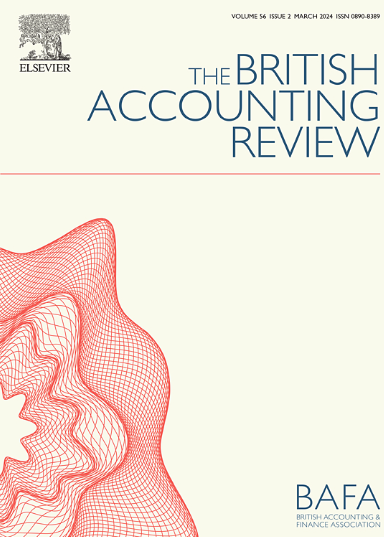Regulator as a minority shareholder and corporate fraud: Quasi-natural experiment evidence from the pilot project of China Securities Investor Services Center
IF 5.5
3区 管理学
Q1 BUSINESS, FINANCE
引用次数: 0
Abstract
The China Securities Investor Services Centre (CSISC) is a unique governance mechanism in China, backed by the Chinese regulator. This institution holds 100 shares of each public firm in the pilot regions and monitors large shareholders by exercising its rights. Using a difference-in-difference (DID) methodology, the study investigates a sample of Chinese listed firms from 2013 to 2017 to evaluate the role of regulatory minority shareholders in curbing corporate fraud, yielding consistent and robust results. The findings of the mechanism tests indicate that CSISC shareholding significantly reduces the propensity for fraud while increasing the probability of fraud detection. The results of heterogeneity tests show that the effect of CSISC shareholdings on corporate fraud is more pronounced in firms with severe internal agency problems and poorer external governance environments. Additional analyses examine the impact of CSISC shareholdings on different types of corporate fraud and show that it significantly reduces disclosure and operational fraud. This research has important implications for improving minority shareholder protection in countries with concentrated ownership structures and for constraining corporate fraud.
监管者作为少数股东与公司欺诈:来自中国证券投资者服务中心试点项目的准自然实验证据
中国证券投资者服务中心(CSISC)是中国独一无二的治理机制,由中国监管机构提供支持。该机构持有试点地区每家上市公司的 100 股股份,并通过行使权利对大股东进行监督。本研究采用差分法(DID),以2013年至2017年的中国上市公司为样本,评估监管小股东在遏制公司欺诈中的作用,得出了一致且稳健的结果。机制检验结果表明,CSISC持股显著降低了欺诈倾向,同时提高了欺诈被发现的概率。异质性检验结果表明,CSISC持股对公司欺诈的影响在内部代理问题严重、外部治理环境较差的公司中更为明显。其他分析检验了 CSISC 持股对不同类型公司欺诈的影响,结果表明 CSISC 持股显著减少了信息披露和经营欺诈。这项研究对所有权结构集中的国家加强对小股东的保护以及限制公司欺诈具有重要意义。
本文章由计算机程序翻译,如有差异,请以英文原文为准。
求助全文
约1分钟内获得全文
求助全文
来源期刊

British Accounting Review
BUSINESS, FINANCE-
CiteScore
8.60
自引率
3.90%
发文量
39
审稿时长
76 days
期刊介绍:
The British Accounting Review*is pleased to publish original scholarly papers across the whole spectrum of accounting and finance. The journal is eclectic and pluralistic and contributions are welcomed across a wide range of research methodologies (e.g. analytical, archival, experimental, survey and qualitative case methods) and topics (e.g. financial accounting, management accounting, finance and financial management, auditing, public sector accounting, social and environmental accounting; accounting education and accounting history), evidence from UK and non-UK sources are equally acceptable.
 求助内容:
求助内容: 应助结果提醒方式:
应助结果提醒方式:


